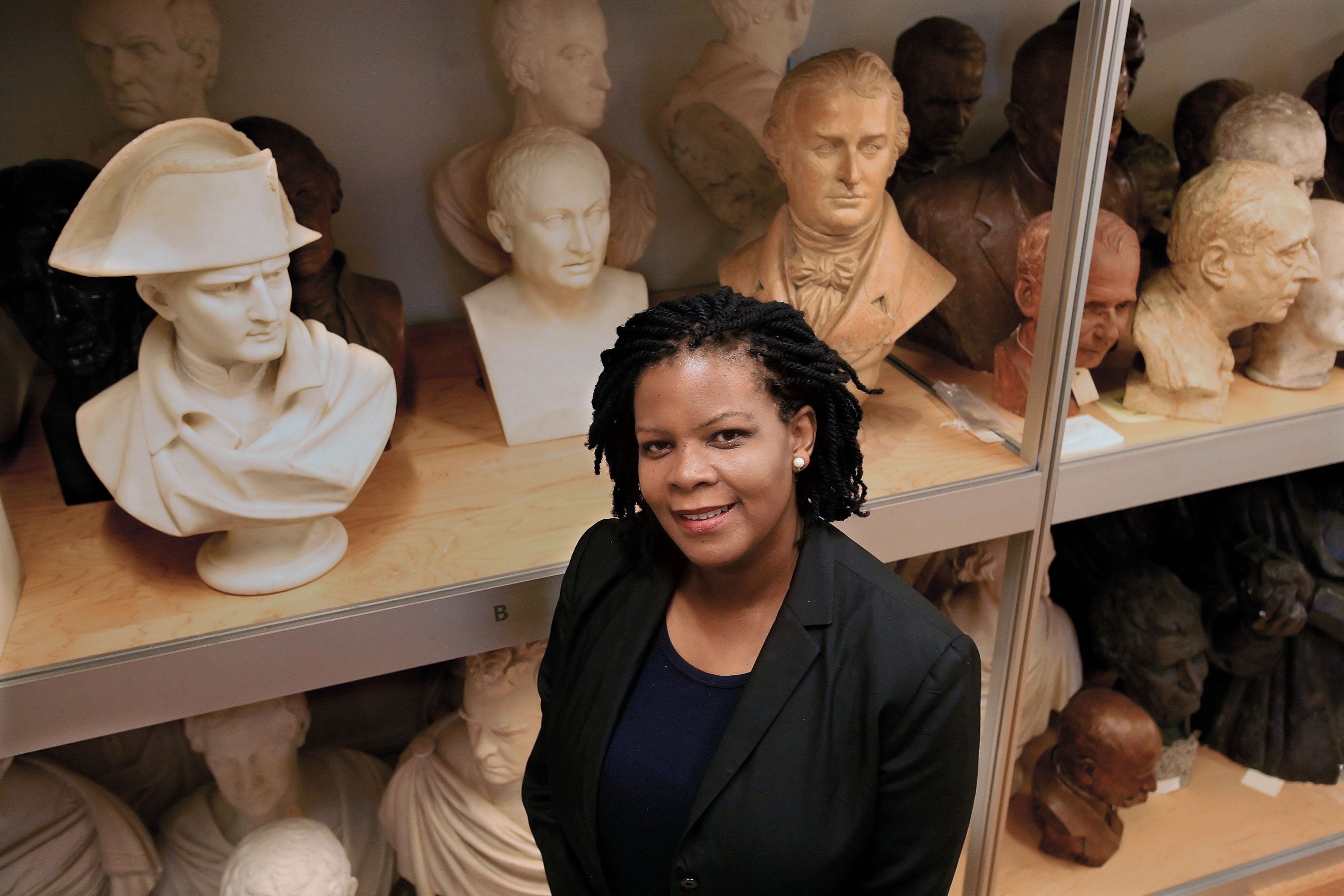Gordon-Reed on investigative history, redefining idols and inviting Jefferson to the Tea Party
When Annette Gordon-Reed ’84 won a “genius grant” this fall, the MacArthur Foundation recognized the Harvard Law professor and historian as having dramatically changed the course of Jeffersonian scholarship. It started with her 1997 book, “Thomas Jefferson and Sally Hemings: An American Controversy,” a re-examination of the evidence about the long-rumored relationship between Jefferson and his slave Sally Hemings. Gordon-Reed’s conclusions were confirmed in 1998 by DNA testing that supported evidence of Jefferson’s genetic paternity of Hemings’ descendants. Eleven years later, her exploration of the lives of those descendants, “The Hemingses of Monticello: An American Family,” won her the National Book Award and then the Pulitzer. In July 2010, she joined HLS, the Harvard History Department and the Radcliffe Institute for Advanced Study. Currently a fellow at the Cullman Center for Scholars and Writers at the New York Public Library, she spoke with Bulletin reporter Alexander Heffner shortly after her MacArthur was announced.
Your research has brought to the fore the possibility of redefining Thomas Jefferson and the generally idolized founders. Was that your intention?
Yes, definitely. He was and remains a pivotal figure in the American story on more levels than anyone I can think of—the development of democracy, race, slavery, the Native American question, relations with foreign nations, botany, architecture—the list goes on and on.
Are enough “investigative historians” re-examining the founders or later presidents, as you did?
Well, I suspect that biographers and historians will continue to refine and expand the range of questions that are asked about presidents. That’s the nature of history. Where we are now shapes our perspective about how to look at the past. We can’t really jump into a time machine and go back to the place and report what we see. There are built-in limitations and we have to live with them.
With the MacArthur Fellowship, do you have specific travel in mind as part of your Jefferson investigation—perhaps exploring the former president’s own ancestry?
I will use some of the money for travel to the places where later generations of the Hemingses lived—Ohio, Wisconsin, Illinois, California, Tennessee. I can now go and stay as long as my schedule permits, without having to think about money. I don’t have any plans, right now, to do any investigations of Jefferson’s ancestry.
Which aspect of Jefferson is most underappreciated, and which aspect is most ripe for your own further examination?
I think his life as a slaveholder and in Charlottesville has not been fully explored. Talk about Jefferson and slavery is largely talk about his intellectual attitudes about the institution, not how he lived it on a day-to-day basis.
In today’s political discourse, the Tea Party protesters have been getting a lot of play. What’s your reaction to their self-professed comparisons to Jefferson and fellow founders?
Well, I suppose it is a tribute to the legacy of the founders that modern movements would want to pattern themselves after them. The thing that occurs to me, however, is that the founders were reacting against a monarchy across an ocean. They could not have voted George III or any part of the government out of office. American citizens can do that if they are able to persuade enough of their fellow citizens of the rightness of their cause. Losing an election does not make the party that wins illegitimate or alien.
You have a joint appointment at Harvard. What collaborations do you envision?
Too many to think of all of them now. But law and history is a natural. … [L]ife happens with a cascade of things taking place from all directions. It was like that in history, too.
